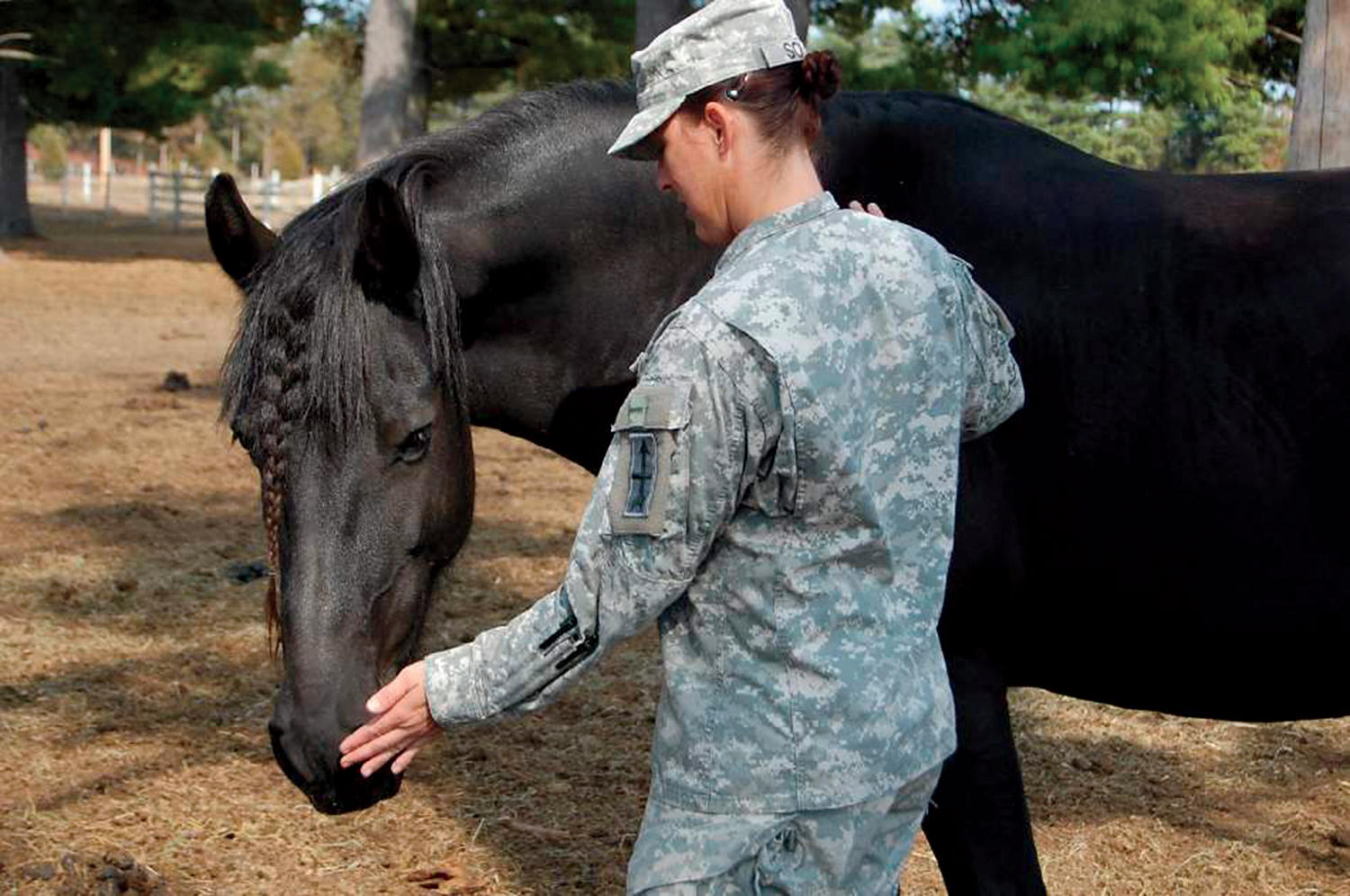Dozens of US military veterans who suffer from posttraumatic stress disorder (PTSD) will soon be traveling to a horse ranch in Leonia, New Jersey. There they will participate in a Columbia study on the effectiveness of equine therapy to treat their symptoms — which can include sleeplessness, nightmares, flashbacks, and emotional withdrawal.
“Horses, like people, are highly social animals who are sensitive to the emotional states of others and can be quite expressive,” says Prudence Fisher ’00SW, an associate professor of clinical psychiatric social work at CUMC who is co-lead investigator of the study. “Anecdotal evidence suggests that for people with PTSD, interacting with horses can be very therapeutic.”
Up to 30 percent of US military veterans are believed to have PTSD, and standard treatments, such as exposure therapy and cognitive behavioral therapy, fail to help many of them. Equine therapy has become an increasingly popular alternative, but the Columbia study is the first to evaluate its effectiveness in treating the condition.
Participants in the study, which will take place at the Bergen Equestrian Center, will be encouraged to bond with horses by grooming and caring for them.
“We’re bringing scientific rigor to the question of whether this approach really works — and if so, how and why,” says Yuval Neria, a professor of medical psychology at CUMC and also a co-lead investigator. “This will give equine-therapy programs around the country some guidance in standardizing their content and delivery.”



